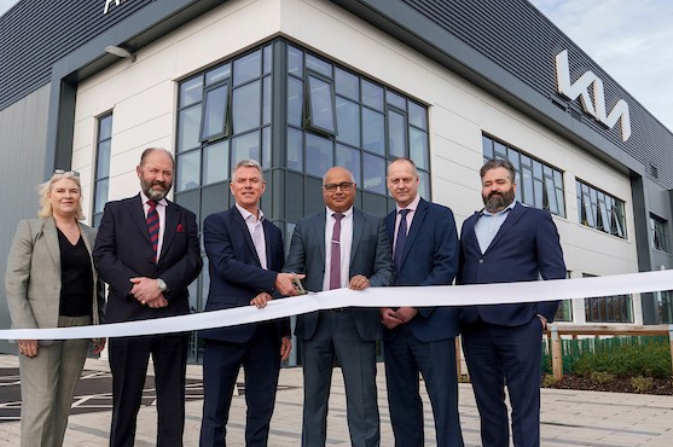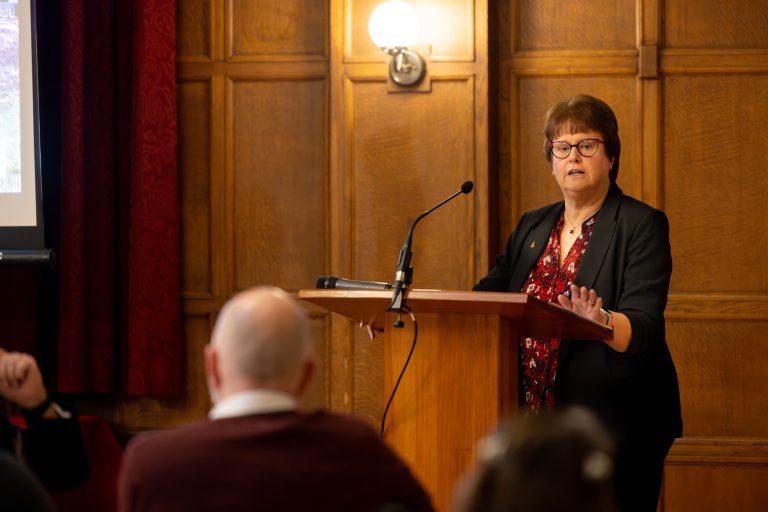Flogas Britain acquires another energy company
East Midlands business activity growth accelerates to fastest since May 2022
Warning for Midlands businesses as tide rises on corporate insolvencies
A rising tide of insolvent businesses in England and Wales could swell further and lead to a significant hike in corporate insolvency levels across the region for 2024.
This is according to the Midlands branch of insolvency and restructuring body R3 and follows the latest annual statistics published by the Insolvency Service which show that there were 25,158 seasonally adjusted corporate insolvencies in 2023, which is an increase of 13.7% on 2022’s figure of 22,123.
The 2023 figure is also an increase of 78.9% on the 2021 statistic of 14,059, and a rise of 46.6% on the 2019 pre-pandemic figure of 17,163.
R3 Midlands chair Stephen Rome, a partner at Penningtons Manches Cooper in the region, said: “Increases in Creditors’ Voluntary Liquidations (CVLs), Compulsory Liquidations and administrations have driven corporate insolvencies to a 30-year high.
“This is due to a combination of increased costs, cautious spending, creditor pressure and the post-pandemic hangover. Unless the economic picture improves, it seems likely that insolvency numbers will rise yet again this year.
“The upsurge in consumer spending that many businesses had been hoping for since the end of lockdown hasn’t happened or, at least, hasn’t been sustained, and the firms who were hanging on and hoping for it have simply run out of time and money. The current business climate is undeniably harsh.
“Our message to company directors, therefore, is simple: if you’re worried about your business, seek advice. It can be a hard conversation to have, let alone start, but there will be more options available, and more time to make a decision, if you act when your worries are fresh, rather than when they’ve spiralled.”
Plans for new retail, office and residential space in Derby to go to Cabinet
Precept cook up a storm by volunteering at YMCA Derbyshire
Volunteers from a Derby company swapped their pens for serving spoons when they cooked up lunches for the community.
HR & Employment company Precept – part of the Barron McCann group – took part in the YMCA Derbyshire Community Meal which, in collaboration with local mental health charity Head High, gives local businesses and community groups the opportunity to provide a nourishing meal for people who might be feeling isolated.
They served traditional Australian pie, mash and peas followed by Lamingtons – a butter cake coated in an outer layer of chocolate sauce and rolled in desiccated coconut that is popular Down Under – to mark Australia Day. Precept staff also donned comedy hats decorated with miniature corks, and themed the dining room accordingly.
More than 100 people attended the event at the YMCA, in London Road, which is aimed at combatting loneliness, a major cause of mental health problems amongst adults.
Also enjoying lunch were members of YMCA in Capetown, who were visiting the city to hear of the successful projects that their counterparts in Derby have been involved with. Pictures of the day were also sent to the YMCA in Australia to showcase celebrations of their national day.
As well as supporting the YMCA’s Community Meal, Precept are also Derby County Community Trust partners and donate to the Mortgage Advice Bureau Foundation. They support S.H.E. UK, too; a charity based in Nottinghamshire that offers support for survivors of childhood sexual abuse, exploitation and sexual violence.
Rob Tice, Managing Director of Precept, said: “When we heard about the community meal, we thought that it would be a great way of supporting the YMCA in a practical way. We had some guidance about quantities – we have never cooked for such large numbers before – and staff at the YMCA were really helpful.”
Emma Tice, who is Head of HR & Employment Law at the firm – and who had spent 11-and-a-half-hours preparing the Lamingtons the day before – said: “We wanted to bring a bit of fun to the day, and I think we certainly did that.
“Precept will certainly be joining forces with the YMCA again and we’re currently exploring how the partnership can be developed.”
Rob added: “We found it hard work but a great team-building exercise and we all found it very rewarding. The best part, for me, was meeting and spending time with the people who attended the lunch. We’d highly recommend that other community groups and businesses get involved.”
University of Nottingham spin-out company will develop rapid diagnostic kits for people with cystic fibrosis
Derby leader opens new Kia Academy
Report recommends proposals needed to balance Nottingham City Council budget
- Introduction of a charge for public toilets
- Introduction of a charge for garden waste bins
- Increases to Council Tax and Adult Social Care precept
- Reduction of public transport infrastructure
- Review of Library Services
- Current link bus services will be retained by using alternative funding sources. Funding for the Medilink service will be removed from April 2025, but in the meantime the council will work with the NHS Trust to develop an alternative operating model for the service.
- Public transport infrastructure, including Park & Ride sites, will be retained by using alternative funding sources, subject to review in the wider region and the emerging Combined Authority from 2025/26.
- Concessionary fares will be reviewed in conjunction with the wider region and the emerging Combined Authority to ensure a consistency of approach. Efficiencies will be created within smart ticketing and the removal Robin Hood ticket machines.
Chesterfield firms urged to access skills support to grow town’s economy
Businesses across Chesterfield have been told they must act today to futureproof their businesses and the town’s economy, by ensuring their staff are receiving the relevant training and skills.
The Chesterfield Employability and Skills Conference (Thursday, 8th February 2024) was hosted in partnership by Chesterfield Borough Council and Destination Chesterfield.
The event at the Winding Wheel Theatre in the heart of the town introduced a new wave of support for firms in the area, signposting businesses to relevant schemes which will help them to upskill and reskill their staff. Attendees at the event were given the chance to meet with representatives from the following organisations:
· Chesterfield Borough Council, Skills Brokerage Service
· Chesterfield College
· Derbyshire BAME Forum
· Direct Education Business Partnership
· University of Derby
· D2N2 Careers Hub/D2N2 LEP
· Derbyshire County Council/National Careers Service
· North East Derbyshire District Council
· Department for Work and Pensions
· Auto Windscreens, owned by Markerstudy Group
· East Midlands Railway
The call for businesses to access this support comes as firms in some of the town’s key sectors say they are finding difficulties in filling vacancies with suitable skilled people.
The latest East Midlands Chamber Quarterly Economic Survey showed that more than 70% of businesses in the region are struggling to fill vacancies, with skilled manual or technical roles proving the most challenging. Industries such as construction, manufacturing, engineering, digital and health & social care are just some of the sectors which Chesterfield Borough Council aims to support with workforce growth.
To address those challenges, Chesterfield’s new skills brokerage gives businesses in the borough the opportunity to gain free, impartial, bespoke advice to support them to access funding, alongside connecting companies to training and development opportunities.
The full range of services offered includes:
· Access a range of fully funded courses to upskill the workforce, ranging from basic skills and business fundamentals to leadership and management, green and digital skills.
· Accessing a variety of funding streams.
· Support to employ Apprentices, including how to access apprenticeship funding and information around the apprenticeship levy.
· Recruitment and retention advice.
· Succession planning.
· Advice and continued support.
Michael Timmins, Director at AECOM and Chair of the Chesterfield Skills and Employment Partnership, said: “It was fantastic to see so many businesses in attendance at the Employability and Skills Conference.
“We know that firms across our area are concerned about the future of their workforces, so it is extremely important that we continue to highlight the support that is out there. I would urge businesses of all sizes to make the most of the assistance available.
“We must all work together to secure the future growth of Chesterfield and ensure that our workforce has the right skills and abilities to meet future challenges.”
Cllr Tricia Gilby, Leader of Chesterfield Borough Council and Vice Chair of the Chesterfield Skills and Employment Partnership, said: “We work closely with a wide range of partners to help local people develop the skills that businesses need both now and in the future, which in turn will help ensure everyone can benefit from a growing local economy.
“Our Skills Brokerage service aims to help businesses access the funding and the information they need to deliver skills development programmes for their employees, but this is just one of the initiatives we have launched that aim to help businesses based in our borough to grow.
“If you are running a business in Chesterfield, please contact our team directly to find out more about the support available to you.”
Chesterfield Borough Council’s Skills Brokerage Service is benefiting from funding through the UKSPF, after the council was successful in securing £2.6m from the Government. It will fund initiatives up to April 2025, which are designed to improve life for local people and support local businesses.
Leicester Arena gets new name in recognition of support from charitable trust
The largest indoor arena in Leicester will now be known as the Mattioli Arena.
It comes after the Ian & Clare Mattioli Charitable Trust accepted an offer of naming rights to Leicester Arena.
The venue – previously the Morningside Arena – is currently being rebranded.
The Trust has donated funds to the Leicester Riders Foundation, the charity which develops basketball and other sport participation for people of all ages across Leicester and Leicestershire.
The generosity of the Mattioli family has resulted in the Trust being offered naming rights, in recognition of their continued support.
Recent donations from the Trust are in addition to the £500,000 donation made to help fund the Arena’s extension in 2022.
The Arena team will work with the family to create a lasting legacy gifted to communities in Leicester and Leicestershire.
The Trust – established by the Mattioli family in 2016 – works to help enhance the lives and opportunities of local people.
In particular it works with communities and socio-economic groups which are often sidelined and which struggle to access opportunities for advancement, personal growth, and to fully participate in society.
Ian Mattioli MBE, founder of the Trust and CEO of Mattioli Woods PLC, said: “We are delighted to continue our support of the Arena, and are proud to accept the naming rights.
“The Mattioli Arena delivers high-quality and high-class events, while at the same time focussing on its community commitments and increasing the profile of the city.
“Leicester has always looked after our family in the very safest of environments and that is why we are delighted to be part of creating a legacy for the diverse communities we support in the City of Leicester and beyond.
“To also be able to do this through sport and a venue that has the potential to impact so many people is something we will continue to take great pride in, and we hope it will be used by many, many people over coming years.”
Kevin Routledge, Chairman of Leicester Riders, Trustee of Leicester Riders Foundation, and a Director of the Arena, said: “Once again, Ian and Clare Mattioli Charitable Trust has shown its commitment to the city and the work of our Foundation, and the Mattioli Arena, and we are hugely appreciative of that.
“The work of the Riders Foundation, and the demands on the Arena, continue to grow and we are committed to further enhancements to our facilities.
“We are hugely appreciative to the Mattioli family’s generous support, which will enable us to deliver an arena, community services, and events that will continue to make the city proud.”
The 3,000-capacity Mattioli Arena stages an increasingly wide range of national and international sports and entertainment events.
It also provides a wide range of community sports opportunities through the Riders’ extensive underage basketball programmes through the Leicester Riders Foundation.
The venue also provides opportunities for Leicester College students, wheelchair basketball users, and other community sport users – making it the largest of its type in the UK.
Last year’s extension to the Arena is already bringing significant additional revenue to the city. It consists of a standalone, 1,200-metre squared, two-court sports hall, with a new entrance to the arena also completed at the top of Memory Lane.
It also has the largest solar array on any individual building in the city, generating 246 kW(p) of solar power and helping the Arena towards becoming a Net Zero business.












